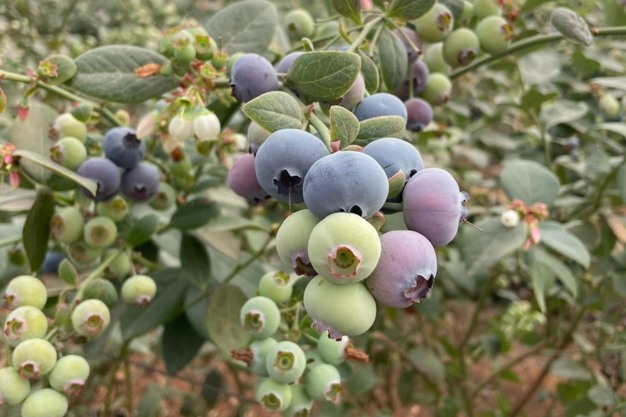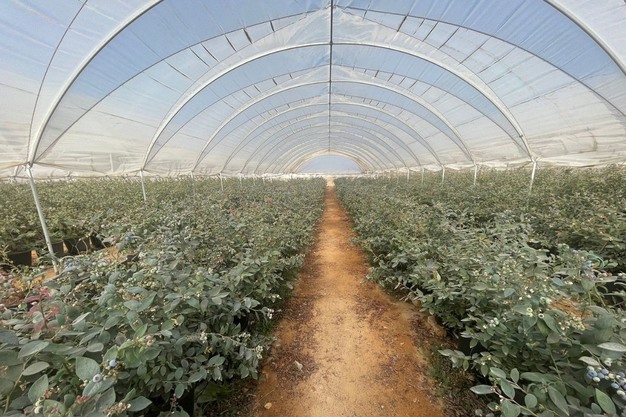The Egyptian blueberry season is drawing to a close. It has been marked by a drop in prices but yields and sizes are improving towards the end of the season, according to Karim Fayed, Operations Manager at Fayed Agricultural Development Company (FATA).
Fayed says: "We finish the current 2024 season in a couple of weeks. We're seeing a strong ending in terms of yield and sizing, which should help us achieve our targets. This year, the Egyptian climate has been inconsistent, which means that the plant has behaved differently depending on the climate. We had a few cold snaps and a few intense heat waves of over 40 degrees, which occurred during the harvest, resulting in inconsistent fruits and inconsistent harvest cycles. Weather conditions are our biggest challenge, alongside the heavy Capex investments needed for new plantations."

The season has seen an increase in acreage, a reflection of the attractiveness of the sector, adds Mr. Fayed: "The blueberry acreage in Egypt is increasing in general, and rapidly. We are already seeing new breeders arriving in Egypt with some of the most exclusive varieties, putting the country on the blueberry map. There is a lot of interest in the blueberry industry, both domestically from farms and internationally from retailers, traders, and breeders."
Market-wise, currently the Asian and Middle Eastern markets are the main destination for Egyptian blueberries, says Fayed. "These markets are an important factor in the production of Egyptian blueberries for export due to the possibility of moving smaller volume few times a week by air. We currently sell to many Asian countries on a weekly basis by air freight."
"Then comes the European market, but with the arrival of Spain at the beginning of the year, it quickly became very competitive and, on our current scale, we only send small volumes by air twice a week, which means that our price is not competitive with the large volumes of Spanish fruit."

Prices for Egyptian blueberries are down on last season, but that's nothing to worry about, according to Fayed. He explains: "This year, export prices are on average 40-50% lower than last year, but we believe that this year's prices are a true reflection of the market. Last year's high prices were only due to the difficult weather conditions in Morocco, which had an impact on their volumes and therefore left a big gap in the market."
Faced with fierce competition from Morocco, which established itself on the markets long before Egypt, and the emergence of blueberry production in Gulf countries such as Saudi Arabia and the United Arab Emirates, Fayed remains optimistic. He concludes: "I think there's room for all these countries. The seasonality is similar, but blueberries are becoming increasingly popular and demand is growing. What's more, blueberries are starting to be consumed in a variety of ways and can find their way onto your plate at all your daily meals, in a salad bowl, in yogurt, in juice, in a dessert, or simply as a snack at the office."
For more information:
Karim Fayed
Fayed Agricultural Development Company (FATA)
Tel: +201001499959
Email: karim.fayed@fata.com.eg
www.fata.com.eg
